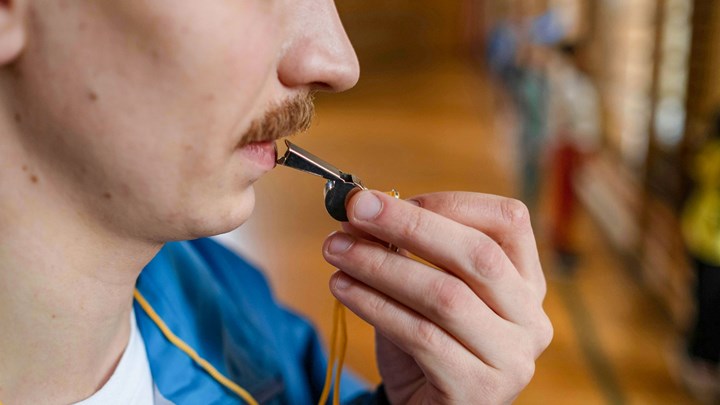
by Cody McLaughlin - Thursday, March 14, 2024

Last week the Center for the Environment and Welfare (CEW) announced it was hiring Ed Sayres, former CEO of the American Society for the Prevention of Cruelty to Animals (ASPCA). In the announcement, Sayres fired some parting shots at the organization he led for a decade—including news that CEW was rolling out a three-part video series covering Sayres’ experiences on the inside of the so-called “animal rights” movement. The video series shares Sayers’ firsthand accounts in overseeing ASPCA’s tremendous revenue growth while criticizing it for the small number of grants it provides to local shelters despite its massive resources.
“What's happened with the ASPCA grants program is that it's now down to about five million dollars a year for pet shelters when you have revenue of $390 million dollars per year,” said Sayres in a statement. “Now that's disappointing …in 2020 and 2021, the ASPCA finished with an operating surplus of fifty million dollars and eighty million dollars, and those resources could really be used to be helping shelters."
In reports from the CEW stretching back to 2009 and earlier, the CEW asserts that the ASPCA gives only 2 percent of its enormous, small-dollar-donation-driven budget to pet shelters, while the group has sat on hundreds of millions of dollars—and even had up to $11 million in offshore Caribbean accounts. It appears that animal rights extremists have an ethics problem.
In one egregious case from the same CEW report, the ASPCA “saved” a one-year-old abused female dog named Oreo that was thrown off the roof of a six-floor Brooklyn apartment building. The ASPCA nursed the dog back to health and dubbed her the “miracle dog.” The ASPCA proceeded to use the dog’s story as a fundraising campaign, which reportedly raised millions of dollars, then it decided to kill her—despite the no-kill sanctuary offering to save her.
“What's upsetting as time has gone on is that the original purpose of those funds seems to be forgotten,” explains Sayres. “People will tell me, ‘Well, I donate to the ASPCA and I know my local organization gets those donations,' and I would say that no, they actually don’t … your local organization doesn’t automatically get funding from the Humane Society of the United States or the ASPCA."
As has been covered by this NRA Hunters’ Leadership Forum website before, the ASPCA—a longtime stalwart of the animal rights and radical anti-hunting space made famous by the ubiquitous Sarah McLachlan fundraising television commercial of the late ’90s and early 2000s—was trounced recently as for its fundraising schemes.
In fact, one of the videos in the CEW’s three-part series—which has received more than 100,000 views since its release just over a week ago—features Sayres accusing his successors of having forgotten their original purpose. He also calls them out for fueling “nationwide donor confusion” via hoarding donations at the national level and refusing to distribute them to the local shelters featured in their fundraising asks.
As noted earlier, with an eye-popping operating budget of $390 million—quadruple what it was under Sayres’ leadership just 10 years ago—Sayres says he can no longer be silent over the mismanagement of the funds received. As for how the grants program took a massive hit and dropped to just $5 million under his predecessor’s leadership, all while the group took in a $57 million operating surplus one year and $87 million surplus the next—that amounts to more than 10 times the amount of money given in grants to the very shelters that ASPCA uses in its fundraising campaigns.
Sayres went on to expose the fact that both the ASPCA and the Humane Society of the United States (HSUS) are sitting on nearly $400 million in reserves—or more than three-quarters of a billion dollars between them. The surplus is known as a “rainy day fund”—all while asking donors for more and more money to fund “dire” crises affecting animals in the United States such shown in some recent social media posts.
As Sayres takes the fight to expose the ASPCA and HSUS for its lack of ethics and fiscal mismanagement to new heights, this NRA website will continue to follow his efforts at CEW and beyond so please continue to check the site for updates.
About the Author
Cody McLaughlin is an outdoor writer, conservationist and hunting advocate based in Alaska. He recently launched Trout Stream Studios as an executive producer for podcasts and livestreams in the hunting and veterans’ affairs spaces—including for the Congressional Sportsmen’s Foundation’s “The Sportsmen’s Voice” podcast and the Blood Origins podcast and the Veterans’ Affairs Administration’s National Center for PTSD. He serves currently on the board of the Alaska Outdoor Council (the Last Frontier’s state NRA affiliate) and is a former board member and lead spokesman of the New Jersey Outdoor Alliance, helping to represent the state’s 1.2 million sportsmen in the political arena.
E-mail your comments/questions about this site to:
[email protected]
Proudly supported by The NRA Foundation and Friends of NRA fundraising.
